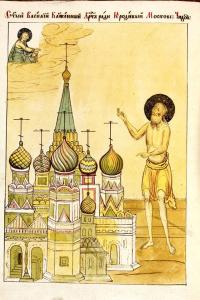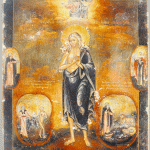
Christians often confuse cultural norms and laws as universal norms which they and everyone else must make made to follow. They think that there is something morally wrong with anyone who doesn’t follow such norms, which means rebels are inherently seen as unholy sinners who should either made to conform to society or treated as outcasts. We can find examples of this throughout history, showing it is a problem not just for one age, but for every age. An example of this can be find in the way many Christians look at clothing and what people wear (or do not wear). Christians are fast to judge people based upon what they wear, especially when they come together to worship. Instead of embracing universal charity, they are ready to cast out those who do not fulfill their fashion expectations. Those who are poor, coming in with rags, or those who come in wearing clothing which they consider to be inappropriate are treated badly, while those who are wearing fine clothing are treated with the utmost respect, contradicting the words of James who derided Christians who acted that way in his time.
When norms change, many Christians will judge those who embrace that change as somehow deficient in their moral sense. To make sure society does not become degenerate, they end up pushing for and demanding society to return to the norms of a time which they believed things were better. They think there was a golden age, often seen as happening just before they were born, and all the problems of the present age comes from the way cultural norms of that golden age have been rejected. The reality is that there never was a golden age, and though some things can be shown to be better in the past, many other things can be proven to be worse, and it was those that were worse needed to be and was addressed by society (as well as by Christians).
Due to society injustices and bad ideologies which prevail at a given time and place, there will be Christians who understand why things need to change, and will work for that change, they will find that they are often alone in such sentiment and many of their fellow Christians will resist their work for change. Often, Christians become so entrenched with a particular social-political bias, they want to enforce it with a tyrannical rigidity, such as we see happening with integralism. But, because what is wanted is not good, indeed, resists the greater or common good which God wants for the world, holy saints rise up contending against that order, doing so often in the most shocking of manners, living a holy life in a way which repudiates those biases that resist the greater good. One of the most intriguing, and perhaps, greatest kind of saints which engage in such reform are those known as fools for Christ; not only do they challenge such norms, they act in exaggerated, even foolish, ways while demonstrate the complete absurdity of those ideologies they resist. Sometimes, it is a challenge to see their actions as being anything but foolish, because of how crazy they seem to be, and yet, over time, it seems remarkable, perhaps even miraculous, things happen around them. There is a method to their madness which slowly reveals itself, especially in hindsight, allowing people to understand they were not fools, they only seemed to be, as they contended against true foolishness, the kind which society, and Christians, came to accept. In the end, their actions, as Christos Yannaras pointed out, often serve to call out sin, and by calling it out in such an extraordinary fashion, they help bring transformation to society and healing to those who need it:
The challenge of the fools, however, does not create confusion in people’s faith, nor does it obscure the truths of the Church. It simply surprises those who have identified faith and truth with the secular concept of moral uprightness and conventional decorum. Fools for Christ have the gift, and the audacity, to manifest only the human fall and sin which is common to us all: this is the reality of our nature, and it is not cancelled out by individual cases of “improvement,” nor by concealment behind social externals. [1]
There are a vast variety of ways holy fools can employ to make their point; in and through all of them, they will, at least in first glance, appear quite foolish. The level and intensity of their confrontation with social mores, and so the kind of foolishness they embrace, will differ from saint to saint. In the West, perhaps the greatest representation of a holy fool is St. Francis of Assisi, who not only encouraged major reform in society, but also encouraged others to follow him in his extraordinary way, a way which helped produce another potential holy fool with St. Anthony of Padua. While it is true, St. Francis has become all so popular, all so famous, that we often have become desensitized to his apparent foolishness, if we consider things he is famous for, like stripping naked in public to show how he has abandoned normative social relations (such as his relationship with his father), we can see he followed the way of the holy fool. Similarly, the way St. Francis, and St. Anthony of Padua, were known to interact with animals, lifting them up, talking with them, indeed, preaching to them, when they found their ministry was being rejected by those around them, once again shows how they embraced the way of the holy fool. Their actions repudiated the society which would have nothing to do with them, and as a result, people took notice and began, slowly, to change their ways, so that in the end society, and the church itself, was transformed by them.
The more Christians accepted the ways of a corrupt society, with the mores of that society being confused with universal norms, the more Christians distanced themselves from the true holiness of Christ with their own pseudo-holiness. The more such pseudo-holiness was promoted and enforced, the more holy fools were known to rise up and place themselves in solidarity with those who are unjustly cast out of society because of the ways they did not fit in. Time and time again, those who claimed moral superiority would judge and condemn the holy fools because the holy fools made their cause with so-called degenerates and sinners. When social mores became more extreme, the holy fools became more extreme; they held on to grace, embracing it as the power and source of their actions, allowing them to truly be holy even when they let themselves to appear as sinners. Like Christ, they took on the judgment of the world in order to demonstrate its judgment was wrong:
The fool himself gives the appearance of being very sinful: he provocatively breaks the fasts of the Church before men, while in reality he practices the strictest ascetism in his eating. He poses as a habitue of the brothels, but when he is there he admonishes the prostitutes and gives money to save them from vice. [2]
The company they would keep would be the company which Christ kept, that is, they kept with “bad company” because such “bad company” welcomed them and their presence and was willing to receive the love and grace they had to offer while the pseudo-holy did not:
The fool goes into taverns and brothels and keeps bad company. He lives on the streets like a vagabond, with disreputable people like prostitutes and street-urchins. He appears to fall in with their way of life, whereas in fact he is revealing to them the truth of salvation in a way accessible to them and on their own spiritual level, through extraordinary antics, jokes and absurdities. [3]
We need more Christians who are willing to be this daring. Today, more than ever, we need those who will be strict with themselves, not because they think they can save themselves, but because they know the trials and tribulations, and the temptations, they will find themselves facing as they challenge those social norms which Christians have mistakenly confused as Christian. They will have to experience the judgment and condemnation society likes to give to outcasts. They will have to make sure they have nothing in them which can be condemned so that their resistance to the present order is pure, for only with such purity can they work to dismantle the ostracization and condemnation outcasts of all stripes receive. Because what appears to be good and holy from a cultural perspective often is foolish when considered from a greater perspective, we need more fools for Christ who will confront such real foolishness with a foolishness of their own, one which is suitable for their time, that is, they need to be authentic with themselves and the situation they find themselves in, and so not merely repeat what holy fools did in the past. For as history sadly shows, Christians easily become complacent and embrace a pseudo-holiness, one which appears righteous and yet denies the power of God’s gracious love. If we have no one to challenge such complacency, no holy fools for our time, we should not be surprised when the world at large thinks Christianity has nothing to offer, because Christians themselves seem ready to accept and promote the worst society has to offer.
[1], Christos Yannaras, The Freedom of Morality. Trans. Elizabeth Briere (Crestwood, NY: St. Vladimir’s Seminary Press, 1984), 74.
[2] Christos Yannaras, The Freedom of Morality, 66.
[3] Christos Yannaras, The Freedom of Morality, 65-6.
Stay in touch! Like A Little Bit of Nothing on Facebook.
If you liked what you read, please consider sharing it with your friends and family!
N.B.: While I read comments to moderate them, I rarely respond to them. If I don’t respond to your comment directly, don’t assume I am unthankful for it. I appreciate it. But I want readers to feel free to ask questions, and hopefully, dialogue with each other. I have shared what I wanted to say, though some responses will get a brief reply by me, or, if I find it interesting and something I can engage fully, as the foundation for another post. I have had many posts inspired or improved upon thanks to my readers.












